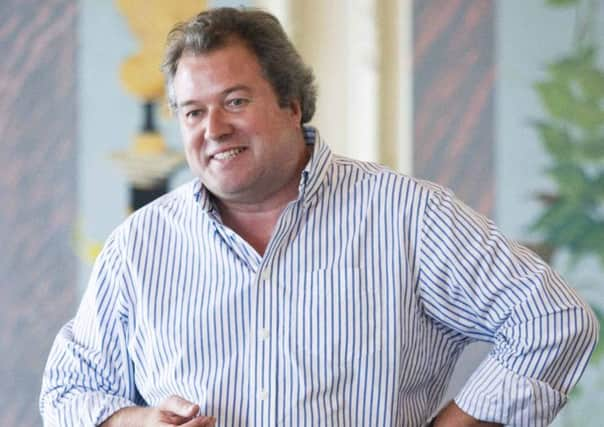Allan Massie: Don't expect to make money from investing in Scottish rugby


Glasgow may be judged a modest success. They are now a club with a strong identity. They have a ground, Scotstoun, which they regularly fill. They have qualified for the Pro12 play-offs since they were introduced and have been champions once. They play good and sometimes spectacular rugby and have developed a fair number of outstanding Scottish internationalists. On the other hand, they haven’t qualified for the knockout stage of the European Cup, and, admirable as their ability to garner support has been, Scotstoun is a much smaller ground than Munster’s in Limerick or Ulster’s in Belfast.
Edinburgh have under-achieved for years. They have some very promising young players, and they have had their moments in European competition. Overall, however, the record has been disappointing. Most damningly, in the 20 years of professional rugby, the SRU has failed to provide the club with a suitable ground. They are now about to return, part-time at least, to Myreside, where they were in their early days.
Advertisement
Hide AdAdvertisement
Hide AdThe case for outside investment is persuasive. Yet “investment” is a misleading word. Normally, investors seek a return on their money. Nobody who invests in our Pro clubs will get that. Nobody anywhere makes a profit from owning, or having a majority share in a professional rugby club. It’s something you sink money in. The cost is huge, far in excess of returns. Some clubs in England and France are owned by very rich men. They get a kick out of ownership but they don’t make money.
When Roy Thomson, a former proprietor of The Scotsman, bought a substantial shareholding in STV, he said commercial television was a licence to print money. Owning a rugby club – or indeed a football one – is a licence to tear your money up.
So the SRU is really looking for benefactors, not investors. They are looking for rich individuals or a consortium of individuals, willing to buy a substantial share in Glasgow and Edinburgh – only that because, it seems, that the SRU is not going to relinquish all control.
There will be conditions, chiefly a requirement that a certain percentage of the playing staff be Scots or Scots-qualified. This is essential. Toulon, champions of France and Europe in recent years, are owned by a very rich man and regularly field a XV with only two or three French players. Without such a legally-binding stipulation, there would be a temptation to seek success in the transfer market that has developed in rugby (as it did long ago in football).
The benefactors will therefore be people who buy into professional rugby because they love the game and hope to get satisfaction and pleasure, also probably prestige, from their involvement. There’s nothing reprehensible about that; quite the contrary. People have bought football clubs, or substantial shares in them, for the same reason for a long time now, sometimes, though not always, to the benefit of club, fans and community.
The benefactors will need deep pockets if their involvement is to be to the benefit of Scottish rugby. It follows that the SRU must look pretty closely at anyone who comes forward. Its previous experiment in relinquishing control of Edinburgh to Bob and Alex Carruthers didn’t last long and ended unhappily, well-meaning and enthusiastic though the Carruthers brothers were. Mark Dodson, the SRU chief executive, will also undoubtedly be well aware of unhappy precedents in football. The financial disaster at Ibrox is fresh in the memory, and one assumes Murrayfield will be wary of self-styled redeemers like Craig Whyte and Charles Green, wary too of the involvement of anyone like Mike Ashley, the boss of Sports Direct.
The SRU move is surely necessary; it transfers a burden from the Union to other interested parties. It might even make the creation of a third pro team at last possible. But let’s not pretend there’s no risk attached. It depends first on attracting the right people and then setting the right conditions. Relinquishing a considerable degree of control may well be just what the professional game in Scotland needs in order to develop.
So it’s a risk worth taking, all the more so because, with the best will in the world, one can’t conclude that 20 years of unfettered SRU ownership of the professional game has been a shining success. It hasn’t been a disaster either, but, if you look at the record of the pro clubs and at the record of Scotland in the Six Nations, November internationals, and World Cups, you can’t pretend that these have been glory years for Scottish rugby.